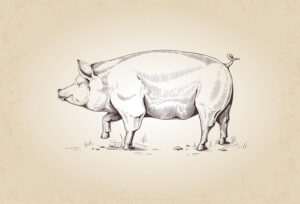Testing begins for possible pig waste-to-hydrogen project

Ammonia-harvesting technology has been installed at the pig farm running the trials under the PigProGrAm scheme, which is backed by £600,000 (€703.1k) of funding from the UK government.
The project brings farming and engineering knowhow together to provide a farm-focused solution to harvest green ammonia from pig waste, which could lead to the creation of hydrogen.
The research project team comprises a consortium of industry leaders - AHDB, Beta Technology, the University of Leeds, Duynie Feed, a commercial pig unit in North Yorkshire and the newest partner, Membracon, which specialises in water treatment, clean water recycling and effluent solutions.
After installing the equipment in July, Aman Sohl from Membracon said: “Our innovative Downflow Gas Contactor (DGC) is a patented, multiple award-winning technology that excels in a wide variety of gas separations applications, such as industrial carbon capture, as well as biogas enhancements.
“The DGC will be used on this ambitious project to help generate a route for the livestock sector to become truly sustainable; considering the true practices of a circular economy, while retaining a sound financial profile to continuing operations.”
Zanita Markham, projects and engagement relationship Manager at AHDB, said: “We hope that the PigProGrAm project will be the first stage of a larger demonstration of the potential of this innovative approach to harvesting green ammonia from livestock and will contribute to the UK meeting its net-zero emission target.
“The project is a step forwards in helping reduce the environmental impact of pig farms which not only enables us to keep meeting environmental targets but could have a significant positive impact on the public perception of pig farming.”
Agriculture is a major source of ammonia emissions, which can impact negatively on biodiversity through nitrogen accumulation on land and acidification of water courses.
This project is looking at multiple areas of pig production, including feed, to help create a more sustainable livestock industry in the UK.


















